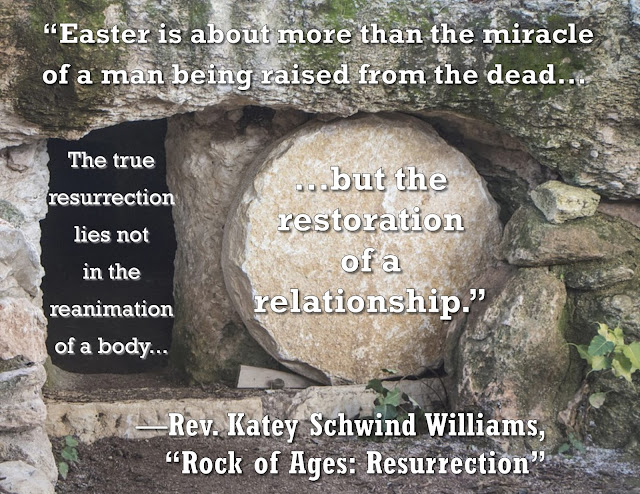--------------------------------------------------
Over the past six weeks of Lent, we’ve explored all the different things that stones can teach us about our faith. We talked about the pitfalls of wanting to be in control and how fighting God’s sovereignty is like a softer stone trying to scratch a diamond. We discussed how God’s faithfulness doesn’t lift us up and away from our problems but keeps us going in the midst of them, like standing on a submerged rock to keep from drowning. We considered the stones NOT thrown—how we can build the kingdom of God here on earth if we choose to lay down our weapons and use them as building blocks, instead. We gave thanks that commitment to God can make us feel like we’ve come home, and we realized how important it is to surround ourselves with reminders of that commitment, whether in the form of massive stone monuments or in a holy meal or sacred font. On Palm Sunday, we were challenged by Jesus, as we considered whether WE might be the “stones” that he calls upon to shout out in witness to God. And on Maundy Thursday, we remembered that our brokenness doesn’t keep God from using us to build God’s kingdom—we can still be the rock upon which the Church is built, even when we feel deeply flawed and unworthy.





